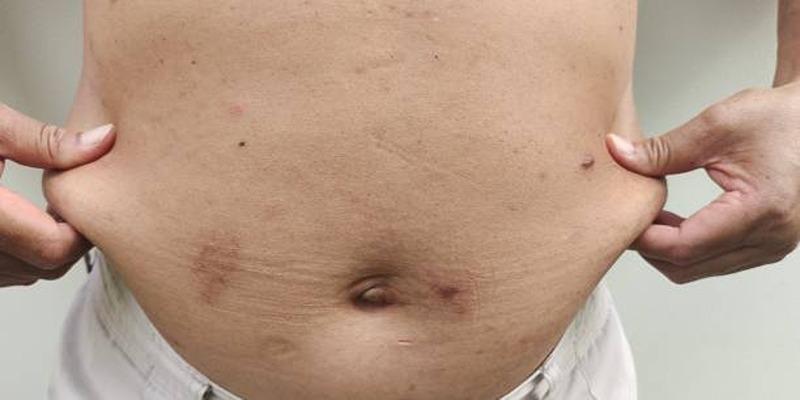Weight loss may follow several different approaches, but medical and surgical direction provides clear way to fastidious results to people planning a tremendous outcome. Differences, benefits and risks of these solutions are important that need to be understood in order to make out informed decisions. This guide covers all these two options, to enable you identify the method that fits well with your health objectives.
Medical Solutions for Weight Loss

In medical weight loss interventions, the therapy is based on non-surgery and managed by the services of health experts. The aim is to develop safe and viable/sustainable methods of fat reduction that cater not only to the physical but also to the behavioral agency of weight control.
Prescription-Based Approaches
Some medicines can also be used under the guidance of the professional to help regulate the feelings of appetite, slow down digestion, or work with the brain to let the organisms know when gastrointestinal tract walls are full or empty. We should not consider these medicines as solutions but rather as aids that assist healthier diets and an incremental approach to treating and management.
The success of such approaches requires the commitment to the dietary and lifestyle suggestions along with medications. Doses have to be adjusted, side effects need to be managed, and the strategy should be serving the long-term cause of success, which can only occur through regular monitoring.
Structured Nutrition Programs
Many medical weight loss clinics provide personalized nutrition plans or meal replacements. These programs aim to control calories while maintaining adequate nutrition, often using scientifically designed formulas or physician-approved diets.
Unlike short-term fad diets, medically supervised nutrition programs emphasize sustainability. They focus on portion control, nutrient balance, and the gradual retraining of eating habits.
Behavioral Counseling and Lifestyle Therapy
A part of medical weight loss can frequently include behavioral therapy. This element deals with psychological triggers related to overeating, eating patterns as a result of fighting with stress, and obstacles that cannot allow a person to continue progress.
Cognitive-behavioral strategies, motivational interviewing or group support may be incorporated in the counseling between the visiting nurse and the family. The interventions are friendly to support weight loss, as well as encouraging resilience, self-awareness, and long-time maintenance skills.
Surgical Solutions for Weight Loss
Bariatric procedures or surgical procedures as they are commonly referred to are often utilized in cases in which the non-surgical procedure has been tried and not been able to yield the desired results; usually, it happens when a patient is at high risk due to obesity.
Restrictive Procedures
Restrictive surgeries aim at shrinking the size of the stomach. Having a smaller stomach, one is willing to get satisfied with less amount of food, so there is environmental decrease in the number of calories.
What makes this approach so appealing is that the effect it produces is rather simple, in that through restricting capacity, the body has to get used to smaller, more regulated meals. In the short term, this stimulates the portion awareness that is long term and promotes a stable loss of weight.
Malabsorptive and Combination Procedures
Other bariatric surgical procedures involve malabsorption and restriction (rerouting of some portion of the intestines). This decreases the calorie and nutrient uptake capacity of the body. Although such procedures can lead to more dramatic loss of weight than the restrictive variants, they also necessitate giving a close attention to nutritional management throughout the weight control throughout our lives.
Post-Surgery Commitment
It is necessary to point out that surgery does not negate the need of healthy habits. Patients will also need to dedicate to new nutrition rules, regular check-ups, and even life-long supplements. Through psychological preparation it is also important to be psychologically prepared, the sudden changes in lifestyle may be confusing without the help and appropriate training.
Comparing Medical and Surgical Solutions
Both approaches have proven effective in specific contexts, but they differ significantly in outcomes, risks, and expectations.
Effectiveness and Results
Medical remedies usually result in a moderate weight reduction (generally 5 to 10 percent of body weight in 1 year). Although this might look insignificant, even minor process simplifications are capable of producing changes in conditions like high blood pressure, insulin resistance, joint strains, and so on.
The surgical methods have higher degrees of permanence in terms of their results, where many patients experience a loss of 20-35 percent of their total body weight during the first two years.
Risk and Safety Considerations
Medical solutions are not very risky. The key obstacles are medication side effects, inability to stick with structured diets or long-term inconsistencies. Since they are not invasive, such methods can be modified or stopped without any long-term problems.
Surgical solutions are not only more risky in the beginning as they require invasive procedures. It can result in infection or bleeding, but the increase in the technological development of the surgery made it much safer.
Lifestyle Adjustments and Psychological Impact
Medical solutions sometimes demand daily struggles to follow dietary programs, counseling sessions and at times a medication regimen. Personal dedication and continuous professional encouragement is a crucial component of success.
The patients of surgery are required to adapt to serious physical changes. Smaller stomach space and distorted digestion impact on the amount and type of food which can be consumed. Foods that were previously tolerated may no longer be tolerated.
Advantages of Medical Solutions

- Less invasive and lower risk
- Recommendable in moderate obese persons or those who are at risk to their health.
- Gives slow and gradual development.
- Concentrates on lifestyle behavior modification and changes.
- Simple to change or undo on finding a given method ineffective.
Advantages of Surgical Solutions
- Considerable and comparatively the swift decrease in weight.
- Amelioration/recovery of weight-related illnesses like high blood pressure and diabetes.
- Considerable alterations of the anatomy [permanent] promote portion control.
- Good alternative to those who are severely obese but have failed to respond to other programs.
- More and more secure thanks to technological advancement in surgical procedures.
Making the Right Choice
The decision between medical and surgical weight loss solutions depends on multiple factors:
- Degree of excess weight and presence of health conditions
- Previous attempts at weight management and their outcomes
- Personal readiness for lifestyle changes
- Risk tolerance and willingness to undergo surgery
- Long-term goals for health and quality of life
For many, medical approaches serve as the first step. If these methods are insufficient or if health risks are severe, surgery may become a necessary option. In some cases, the two paths complement one another, with medical programs supporting surgical outcomes and vice versa.
Conclusion
A very individual process, weight loss cannot be measured by a scale alone. Medical and surgical solutions have their own benefits to provide to a person who requires some orderly assistance, yet no one is an easy or immediate cure. The decision between any of them will depend on personal health demands, life aims and readiness to be involved into permanent change. There is a slow-paced approach to medical intervention, behavior modification, and habits.












